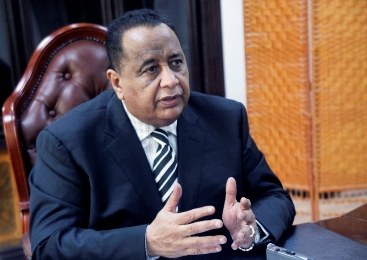Sudan looks for greater Russian role to repair ties with South Sudan
September 8, 2015 (KHARTOUM) – The Sudanese government said it was looking forward to a greater Russian role in the normalization of relations with the South Sudan, and declared readiness to accept any initiative to ease the troubled relations.

In press statements before to leave for Moscow, Sudanese foreign minister Ibrahim Ghandour underlined to importance of the visit, pointing that Russia is an important actor on the global stage and has strong economic relations with Sudan.
“Sudan looks for a bigger Russian role in the resolution of the outstanding issues between Khartoum and Juba,” Ghandour said in an interview with Russian news agency Sputnik before his departure.
“At every opportunity, Sudan confirms its commitment to have good relations with the South Sudan. Thus, Sudan accepts any initiative or mediation aiming to repair relations between Khartoum and Juba, especially when it comes from a country like Russia” he further said according to the Sudanese official agency SUNA which also published the statements.
The initiative comes as Juba government has signed a peace agreement with the rebel leader and former vice-president Riek Machar ending the 20-month long conflict in the new country and paving the way for more internal reforms since its secession from Sudan in July 2011.
Khartoum recently expressed dissatisfaction about the slow implementation of the Cooperation Agreement between the two countries. Officials pointed that the only implemented protocol is that one of oil exportation.
Sudanese and South Sudanese government trade accusation of support to rebel groups from both sides.
Also Khartoum says Juba stopped the implementation of the security agreement and the deployment of joint forces in a buffer zone on the border.
According to an agreement reached by the two head of states last year, the minister of foreign affairs from the two countries co-chair a coordination committee tasked with the follow-up of the discussions and implementation of the different protocols of the cooperation agreement.
(ST)
